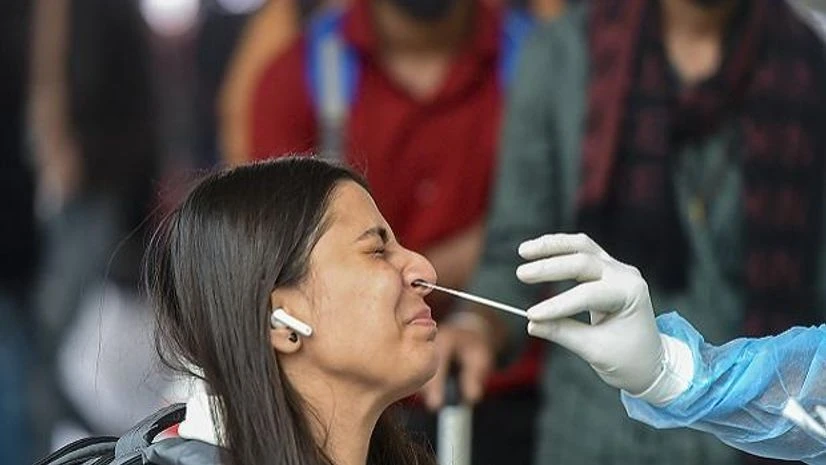Daily figures of new coronavirus infections declined in Maharashtra in the first fortnight of July, but the number of fatalities showed an upward trend, data shows.
Cases surged in January 2022 due to the Omicron variant with as many as 10,37,080 cases being reported in the entire month. The number fell to 1,44,596 in February, and steeply declined later with only 9,354 cases coming to light in May.
But there was a spurt in June when 89,028 new infections were reported in the state besides 66 fatalities.
Between July 1 to 15, Maharashtra reported 38,709 new infections. As many as 90 deaths, more than those reported in entire June, were also recorded during this period.
As of July 15, Maharashtra had 16,000 active cases.
Dr Pradip Awate, the state's health surveillance officer, said many times a patient with severe illness succumbs after three or four weeks.
More From This Section
As a result, while there may be a rise in cases in a given month, it may not lead to an immediate spike in deaths. Higher mortality may be noticed in the following month, he said.
Dr Sunil Bhaisare, who runs a COVID-19 facility at the state-run St. George Hospital in south Mumbai, said most of the fatalities reported at his centre were older patients or those with comorbidities like diabetes and hypertension.
Awate said that around 80-85 per cent of COVID-19 cases in the state are of BA.2.38 and BA.2 sub-variants.
According to the state health department, the tally of BA.4 and BA.5 patients in the state stands at 113, and that of BA.2.75 patients at 40. All three are sub-variants of Omicron.
On declining cases, Dr Manjusha Agarwal, senior consultant-internal medicine at Global Hospital, said patients are recovering in 48 to 72 hours after reporting symptoms.
Nobody (among those treated by her) has required any remdesivir or immunotherapy in this current surge. Patients are not having major complications. Vaccination has also helped, Agarwal said.
Gradually, the intensity of illness is coming down, "so there is no need to panic, she added.
Trupti Gilada, Infectious Diseases specialist at Masina Hospital, said every time there is a surge in coronavirus cases, it is bound to come down in a few weeks.
This is because of the gradually increasing immunity in the population against the current strain of the virus. When the surge begins, many people are susceptible and we see a large number of cases, Gilada said.
As more and more people recover, the proportion of the susceptible population falls rapidly, thus bringing down the number of new infections, she said.
"Vaccination and booster doses also have played a crucial role in bringing down this surge, she said.
The decline cannot be attributed to better use of masks or improved COVID-appropriate behaviour because evidently, that never happened, Gilada noted.
Dr Rahul Pandit, Director-Critical Care, Fortis Hospitals Mumbai, who is also a member of Maharashtra government's COVID-19 taskforce, observed that the increase, plateauing and decrease in cases is following a known pattern.
The Omicron variant has shown a rapid rise in the number of cases, followed by a quick plateau at the top and then decline, he said, adding that the third wave or Omicron wave lasted for around six to eight weeks.
A similar pattern of rise in cases was seen recently, but the numbers have now plateaued and started to come down," he noted.
(Only the headline and picture of this report may have been reworked by the Business Standard staff; the rest of the content is auto-generated from a syndicated feed.)

)
